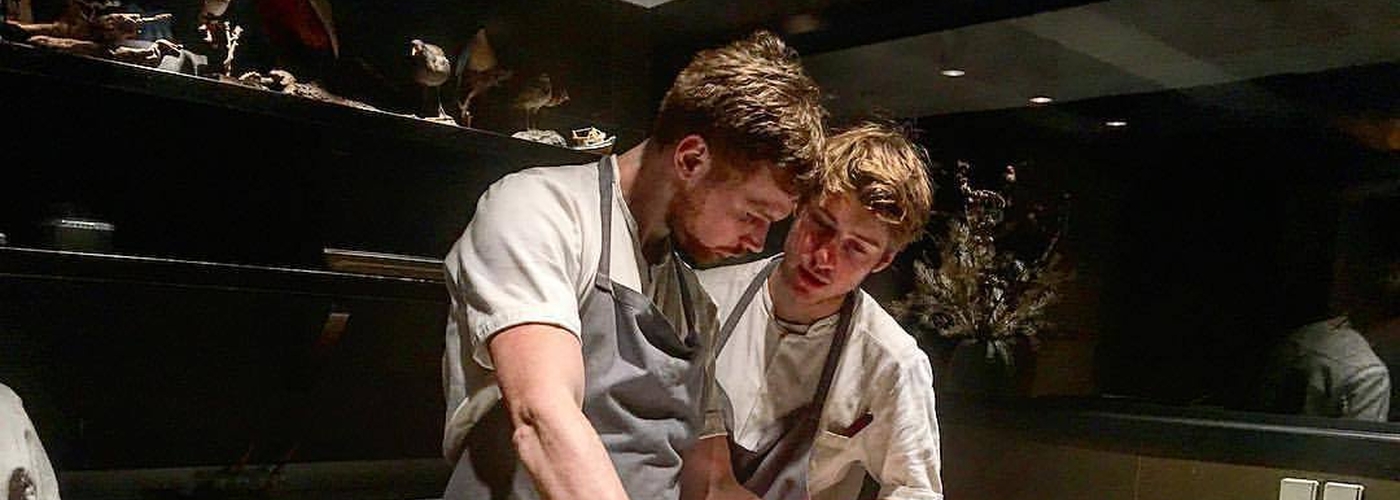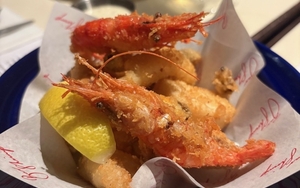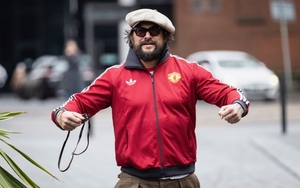Opening his debut restaurant in Sawmill Court this summer, ex-Noma chef Simon Martin talks tasting menus, temperature zones and new cuisine
ANCOATS is undergoing a startling transformation. The area, once the centre of the global cotton trade, home to towering steam-powered mills and smoke-belching chimneystacks, is morphing into a hotbed of trendy apartments, work spaces, independent bars, restaurants, cafes and bakeries.
Now Chester-born chef Simon Martin, who spent two years working at Rene Redzepi's gastronomic mecca, Noma, in Copenhagen, is to join the influx with plans to open his debut restaurant, Mana, in Ancoats this summer.
The restaurant will occupy a 30-cover space in Manchester Life’s Sawmill Court residential development, directly opposite the Halle St Peters off Cutting Room Square - home to Rudy's, Seven Bro7hers and Elnecot.
Martin's exciting new project will open four evenings a week, offering guests a ten to fifteen course tasting experience at around £100 per head.
We spoke to Simon to find out a little more….
"When things grow in the wild they have to survive the elements, which makes them stronger"
Now you've secured a venue, tell us more about Mana.
Simon Martin: “The idea is to look a little bit further past what a usual restaurant does. We’re going to put a lot of time and effort into research and developing a new cuisine, basically. In terms of the industry, hospitality and catering is known to be quite an abusive environment and we want to change that, make it better for our staff. It’s about really progressing and reconnecting with everything we work with.”
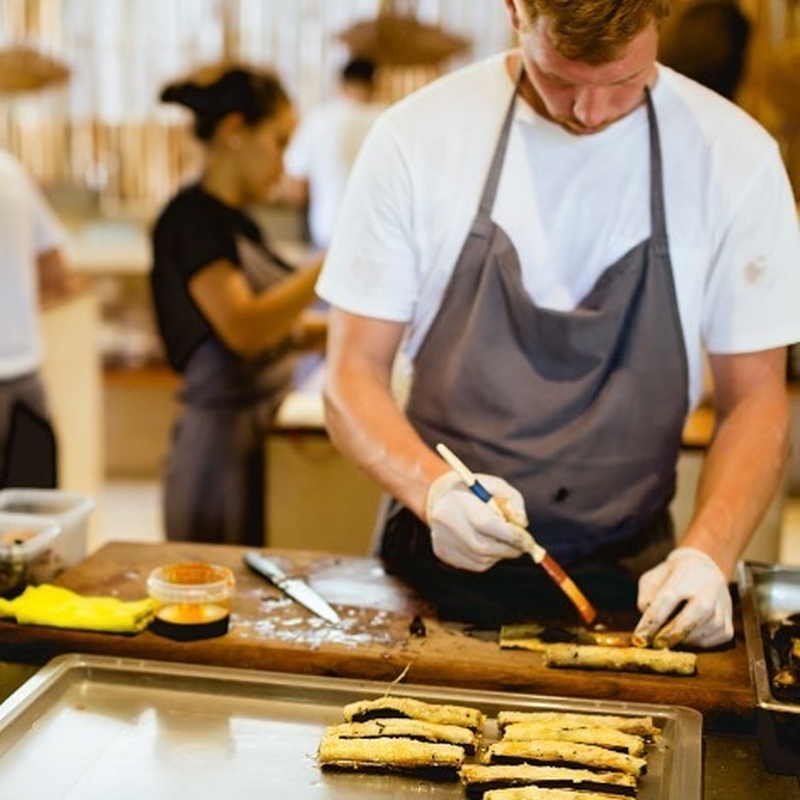
You say the ingredients will take centre stage...
SM: “We want to use wild produce wherever possible – that’s a big part of it. Not just from a sentimental point of view, or for a marketing gimmick, but because when things grow in the wild they have to survive the elements, which makes them stronger.
“If you compare a fillet, which doesn’t do much work, to a rump steak, the rump just tastes better, and it’s the same with plants. Not many restaurants in the country focus on foraged ingredients. Some rely on things they’ve farmed themselves in ideal growing conditions, but there is a lot of wild produce growing in the UK that’s really untouched."
"We’re not just going out picking a load of mushrooms and putting them on a plate"
Will you be doing the foraging yourself?
SM: “Not personally. We have a guy called James Wood who has a foraging business called Totally Wild UK and we’ll be sending our chefs out with him so that they can get a real understanding of what’s it’s all about. Foraging is not some sort of romantic trip through a field gathering plants; it’s hard work with an element of chaos. I’ve done it at Noma, essentially you’re a wild farmhand. The chefs really need to build up an understanding of wild food and the sustainability behind it, so we’re going to invest a lot into training, we’ve even got a budget set aside. Staff will get three days off, but one of those days will be a paid-for team building day.”
Chefs out foraging for themselves... sounds risky.
SM: “It’s no more dangerous than knowing the correct way to store seafood or avoiding cross contamination. It all comes down to knowledge, I've worked with foraged ingredients for years at a high-level. We’re not just going out picking a load of mushrooms and putting them on a plate, it’s an educated process. Yes it’s a risk, but it’s the same risk that you take when you’re preparing anything that is meant for human consumption.”
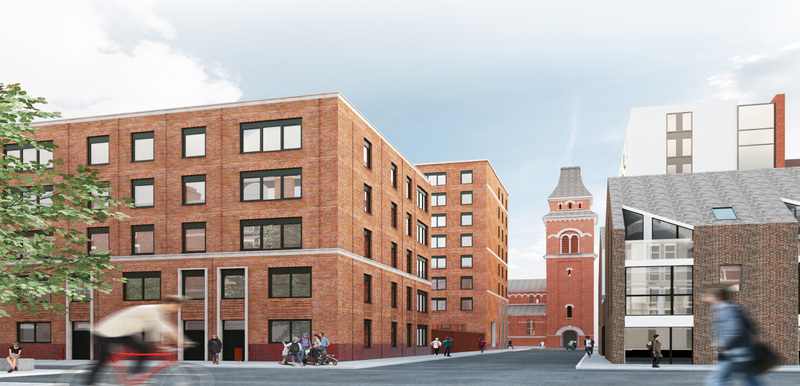
Do you think people are still interested in sitting down to ten or fifteen course tasting menus?
SM: “Overall it’s about providing people with a dining experience and the way to maximise that isn’t with three courses. We’ve got a lot to share, a lot to show and a lot to offer - a series of courses allows us to show more about what we can do. If you have a pizza, you’re having one thing that has maybe three or four flavours on it, but Mana is more about taking customers on a journey of the land and the sea and we can only do that by offering multiple courses.”
You've obviously spent a lot of time in Noma kitchens, but you’ve said Mana will be different. How so?
SM: "Obviously we’re making a large effort not to be the same as anyone else. You take all the good things that you’ve learnt in your career, filter out anything you didn’t like about those places and then you move forward. We’re going to research our own ethos and our own ideology, so it’s only natural that it will be unique. We’re not out there to copy anyone. Creatives are naturally inclined to be continuously inspired by their experiences."
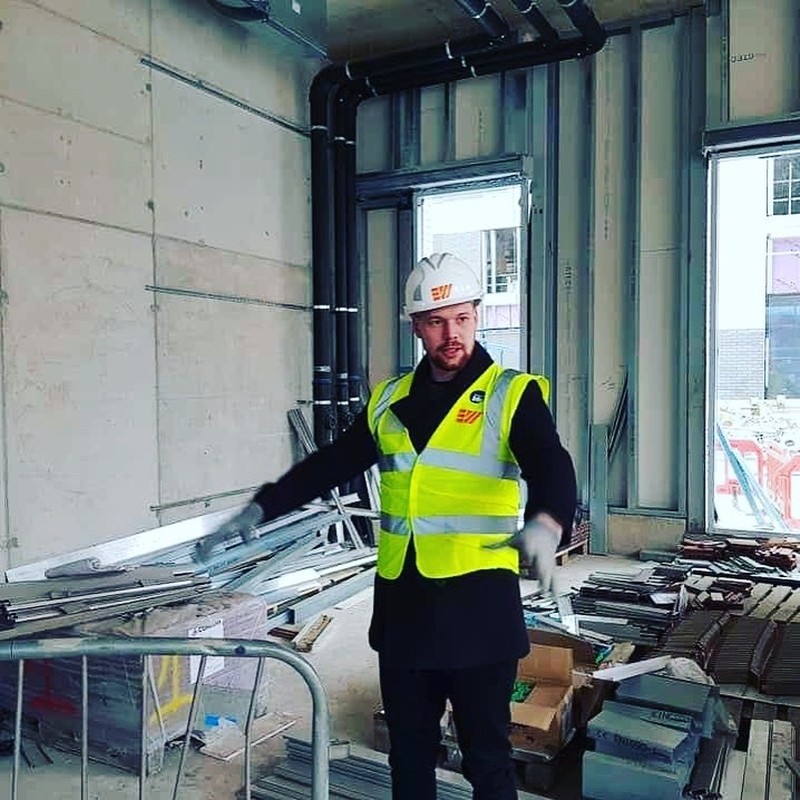
Why Ancoats?
SM: “What’s happening in that area right now is amazing. It’s a fantastic location. It’s not central, but it is still Manchester city centre and there’s a lot of development and money going into the area at the moment. More importantly, we wanted a brand new unit. We didn’t want to take over somebody else’s space. We’re having a bespoke kitchen designed for us to be able to do exactly what we want to do. We’ll be splitting sections up by temperature because that’s what works best for us. It was also important for us to get a feeling of the elements in the restaurant. It goes a lot deeper than just making it pretty."
Hold on, the kitchen is divided into temperature areas?
SM: "Essentially we will have four areas in the kitchen: cold, ambient, freezing and hot. That’s just the best way for us to divide the menu."
Have you found it easy to get backing?
SM: "My profile helps for sure. It wasn’t easy. I didn’t just write something on Facebook asking for money, but it wasn’t as difficult as some people might find it I suppose."
So you never had to do the crowdfunding thing?
SM: "I know a lot of people who have done that successfully, but for a restaurant like ours, offering a premium product, it wasn’t really the right thing. It’s not the sort of image we want to give out before we open. That’s not dissing anyone who has done it, but its not right for us."
"It can take us six months to come up with a dish"
People are naturally going to compare you to the closet thing we have in the region, which sounds like Where The Light Gets In. Have you been?
SM: "I'm going in April, but we consider them friends rather than competition. I think that’s what’s great about the Manchester restaurant scene. We’re not a chain competing for hundreds of people, so we all have a good relationship. I’m also booked to do a symposium with them at Sadler’s Yard in May.
"The difference between WTLGI and what we’re doing at Mana is that they concentrate on what’s available on the day, whereas we will be focusing a lot on research and development. It can take us six months to come up with a dish, so we’re a very different style in terms of what's behind the menu."

We know you’re from Chester, and that you’ve worked at Noma, but tell us something we don’t know.
SM: "I actually started out as a semi-professional motor cross racer, until I was sixteen. The plan was always to follow that through, until I got injured. My dad saw me watching Jamie Oliver on TV and persuaded me to get a job with Simon Radley at The Chester Grosvenor, which is one of the few Michelin starred restaurants in the North West.
"In the beginning, I don’t think I fell in love with food so much, I just needed something to do. A love of the kitchen came before the food; the discipline behind it and the organisation required. There’s a lot to learn about running a kitchen before you even start getting into the food, especially at that level."
So now you’re ready to open your own place...
SM: "Exactly. I have spent eleven years cooking and after Noma, I thought, ‘where else do you go from there?' It was either open my own restaurant or do something completely different, and I didn’t want to do that. I'm the most driven I have ever been in my entire career so it just made sense to be creative and follow my own path."





